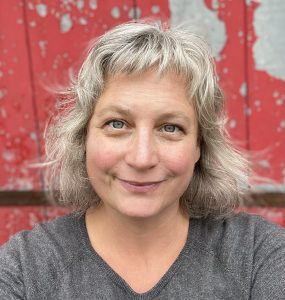
she/her
Chair, Master of Arts in Children’s Literature (MACL)
Assistant Professor, School of Creative Writing
Office: Buchanan E, Room 166
Email: e.pohl-weary@ubc.ca
Quick Links
School of Creative Writing Faculty Page
Emily Pohl-Weary is an award-winning author, assistant professor in the UBC School of Creative writing, and chair of the Master of Arts in Children’s Literature (MACL) program.
Her latest YA novel, How to Be Found, was published by Arsenal Pulp Press in fall 2023. It has been called “a darker, grittier Nancy Drew” (Toronto Star) that “captures the angst and drama of teen life” (Zoomer Book Club) and “will resonate with readers who are forging their own identities” (Quill&Quire).
Her audio play, The Witch’s Circle, was produced by Odyssey Theatre for their “The Other Path” series. It is a retelling of a folktale about the fearsome witch Baba Yaga featuring girls living in a group home and can be streamed online here.
Emily’s previous books include Ghost Sick: A Poetry of Witness (Fred Cogswell Award for Excellence in Poetry) and young adult novel Not Your Ordinary Wolf Girl. Her first book was her grandmother’s biography, Better to Have Loved: The Life of Judith Merril, which won a Hugo Award and was shortlisted for the Toronto Book Award. She has also published a middle-grade mystery novel, a novel for adults, an anthology about femme superheroes, a second poetry collection, and a girl pirate comic.
Emily holds a PhD in Adult Education and Community Development from the University of Toronto. For over a decade, she ran writing workshops for street-involved youth in Toronto. She has also worked in the publishing industry as the editor/publisher of feminist literary magazine Kiss Machine, the managing editor of Broken Pencil Magazine, and the acquisitions editor for high school English textbooks.
Research Interests
| • Writing for middle-grade and young adults; • Writing speculative fiction; • Graphic novels and comics; • Film, play and podcast scripts; • Memoir and creative non-fiction; • Poetries of witness; • Arts-based community development; • Liberatory, transgressive, and anti-oppressive pedagogies; • Decolonizing education. |